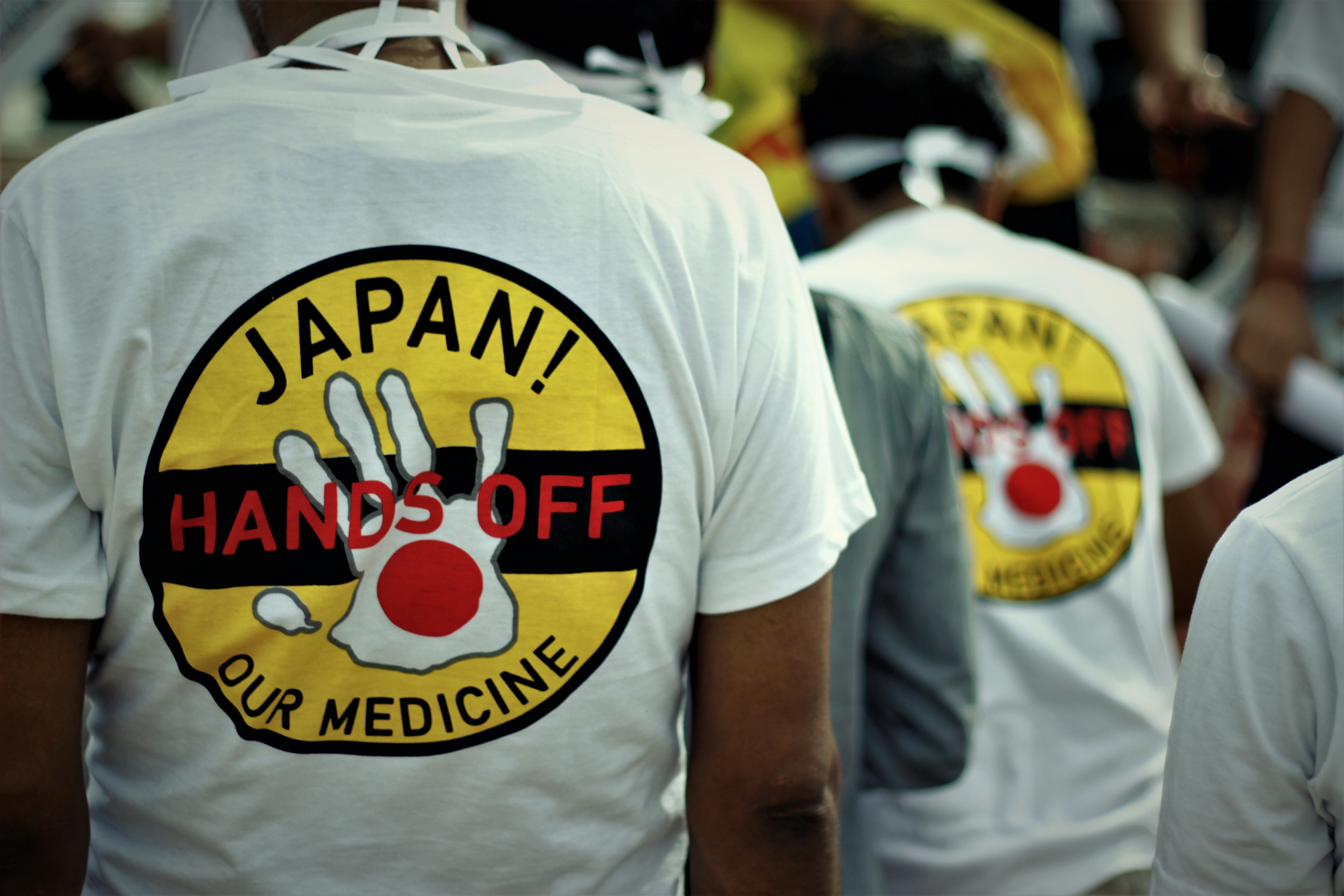Tokyo’s drift towards intellectual property crusader
East Asia Forum | 8 February 2018
Tokyo’s drift towards intellectual property crusader
Authors : Belinda Townsend,, Deborah Gleeson, & Ruth Lopert
Trade representatives will attend another round of negotiations for the Regional Comprehensive Economic Partnership (RCEP) agreement in Jakarta this week. While the agreement is often touted as an opportunity to enhance regional security and to support trade liberalisation, less publicised are provisions to strengthen intellectual property protections and their potential impact on countries that seek to enable and maintain affordable access to medicines.
Even less well known is Japan’s emerging role in promoting and defending these expanded intellectual property rights.
Japan’s position can be traced back to when it joined negotiations for the Trans-Pacific Partnership (TPP) in 2013, which at that time included the United States, Australia and nine other countries. Negotiations on pharmaceutical intellectual property were then at a stalemate. Leaked texts revealed that the United States was pushing for a number of intellectual property provisions that extended the length of time a drug company would retain its market monopoly on a new medicine. Public health groups were particularly opposed to these measures, since these groups recognised that the measures would inevitably delay the market entry of cheaper generic versions of drugs in several countries. This delay coupled with unrestrained pricing would create barriers to affordable access.
While Japan initially appeared to oppose the US provisions, the leaked November 2013 draft text revealed a shift in position : Japan appeared to side with the United States on several measures. With the combined GDP of the two countries amounting to almost 80 per cent of the Partnership’s collective GDP, the economic power of the two countries likely played an important role in shifting the dynamic of the negotiations. By mid-2014, further leaks showed the countries had moved to negotiating intellectual property standards that went well beyond international norms.
Japan’s role in RCEP negotiations appears to have been shaped by its participation in the TPP. The first leaks of proposed RCEP intellectual property text (released in February 2015 but dated 3 October 2014) revealed that Japan itself was pushing a number of intellectual property provisions that resembled those in the TPP. Several RCEP countries opposed these provisions. While the most recent leaked intellectual property chapter (from 15 October 2015) omits several of these, some contentious intellectual property provisions appear to have been retained. These may serve as sticking points for negotiators in Jakarta this week.
There are two major proposals that appear to still remain on the table for intellectual property. The first is to extend patent terms to compensate for delays in marketing approval processes. The second is to mandate minimum periods of time during which companies seeking to sell generic medicines may not rely on the clinical trial data that the original developer submitted to regulators. These provisions’ inclusion in RCEP is particularly controversial because the agreement includes India — a global supplier of generic medicines. India is not only a source of generic medicines for low- and middle-income countries but also for Japan, Europe and the United States.
Recent developments in the renegotiation of the renamed Comprehensive and Progressive Agreement for Trans-Pacific Partnership may influence the outcome of intellectual property provisions in RCEP. In November 2017, months after the US withdrawal from the agreement, Japan and Australia joined the remaining countries in agreeing to suspend a number of intellectual property measures that the United States had previously secured. Their suspension may make expanded intellectual property rights less likely in RCEP, where India and ASEAN are both strongly opposed to provisions that could impede affordable access to medicines.
Japan’s newfound role as intellectual property champion in the Asia Pacific reflects domestic changes. In 2013, Japanese Prime Minister Shinzo Abe introduced his economic revitalisation strategy, which aimed (among other things) to bolster Japan’s pharmaceutical exports. This objective included an explicit focus on raising the level of intellectual property protection in ASEAN and China through RCEP.
Japan’s broader intellectual property strategy appears to be working for its economy : newly released figures show that Japan now ranks second in the world in intellectual property exports, and revenue from intellectual property has increased 74 per cent in the past five years. This aggressive intellectual property stance towards regional trade in Asia will, however, likely come at the expense of poorer countries.
Japan’s position on intellectual property may also exacerbate its own healthcare costs. Japan has seen continued growth in pharmaceutical spending above the OECD average. Generics accounted for only 11 per cent of Japan’s pharmaceutical market (by value) in 2013 compared with 24 per cent on average in the OECD. Increasing the use of generic medicines in Japan could moderate healthcare costs — but under the intellectual property provisions that Japan is seeking in RCEP, such a move may only be limited at best.
Dr Belinda Townsend is a research fellow at the School of Regulation and Global Governance, The Australian National University.
Dr Deborah Gleeson is a senior lecturer in the School of Psychology and Public Health at La Trobe University.
Dr Ruth Lopert is an adjunct professor at the Milken Institute of Public Health, George Washington University.
This article is based off the authors’ paper ‘Japan’s emerging role in the global pharmaceutical intellectual property regime : a tale of two trade agreements’, which was published here in the Journal of World Intellectual Property.
Read full paper here






